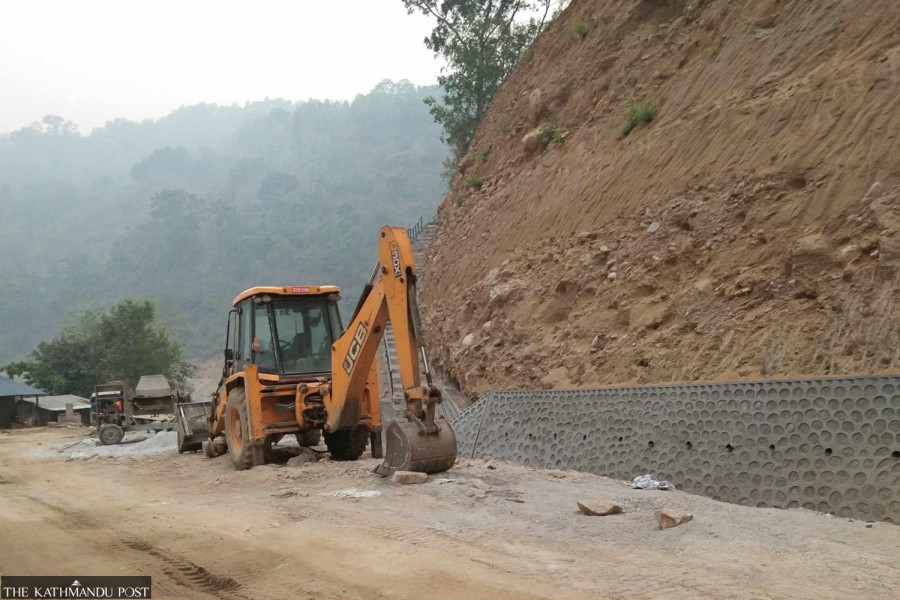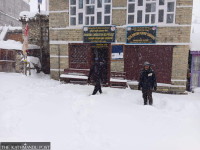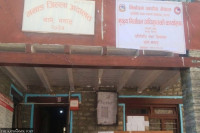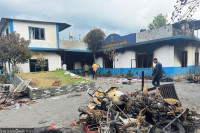Gandaki Province
Kaligandaki corridor road cuts travel time, eases lives
Residents near the Kaligandaki river in Baglung, Parbat and Gulmi now have direct access to the national road network.
Prakash Baral
About a year and a half ago, Sujata Thapa, a resident of ward 1 of Jaimini Municipality-1 in Baglung district had to visit Butwal of Rupandehi district for personal work. To get there, she took a three-hour bus ride on a 21 km rural road to reach the Baglung district headquarters. She stayed overnight at Baglung Bazar and caught a bus for Butwal the next morning. At the time, people like Thapa had no alternative but to take the longer route through Pokhara and Syangja to reach Butwal.
Things have changed now. With the construction of the Kaligandaki corridor road, the distance from Baglung to Butwal has been reduced by around 100 km. “We used to pay around Rs1,700 in bus fare to reach Butwal through the Pokhara-Syangja route, and it took the whole day to reach Butwal. Now, both the fare and travel time have decreased,” said Thapa.
The daily lives of people in Baglung, mainly those in settlements near the Kaligandaki river, have improved significantly since the Kaligandaki corridor road came into operation. Also, the transportation costs have decreased markedly.
“Now, people can easily go to Butwal through the corridor road. Patients can reach hospitals on time, and we can buy goods at cheaper rates in Butwal,” said Prakash Dhungana. “The Kaligandaki corridor road has already eased our lives. It will be even better once the road is upgraded and blacktopped,” he added.
A 60-km section of the Kaligandaki corridor road lies in Baglung. Road upgrade work is currently underway with a plan to complete it by mid-December, 2025.
The Kaligandaki Corridor Road—one of the national pride projects—is a tri-national road that connects China and India. The 435-kilometre corridor that connects Sunauli in India to the Korala border in China is touted to be a key trading route connecting the southern and northern neighbors. An estimated 1 million people of 10 districts of Nepal will get direct access to motorable roads.
In Baglung, residents of Jaimini, Balewa and Bareng in Baglung have greatly benefited from the corridor road project. Likewise, people of Kaligandaki Rural Municipality in Gulmi district, as well as Bihadi and Phalebas municipalities of Parbat district, now have direct access to the national road network.
“Our children who are studying in Butwal can easily come home within a few hours through the Kaligandaki corridor road. Butwal and Kushma, the district headquarters of Parbat, are equally accessible now,” said Hari Neupane of Bihadi, Parbat.
The Nepal Army opened an 85km passage between Ridi of Gulmi to Maldhunga of Baglung and later widened the road by 10 metres. Blacktopping work is currently underway.
Kalika Construction was awarded the contract to blacktop a 45 km stretch from Narayansthan in ward 14 of Jaimini Rural Municipality to Harmichaur of Gulmi at a cost of Rs3.33 billion. As per the project agreement, the construction company should complete the blacktopping by mid-December this year.
“The road has been blacktopped in some sections. Preparations are on to blacktop in the remaining sections. It seems that the project will be completed before the deadline,” said Surendra Gautam, an engineer at Palpa office of Kaligandaki Corridor Road Project.
Likewise, Bidar Construction was awarded the contract to blacktop the Balewa section in Baglung district at a cost of Rs990 million. Upgrading work is underway in the section. The Ridi section in Gulmi has been already blacktopped.
“We used to walk along the banks of the Kaligandaki river with great difficulty in the past. Now we can travel easily by bus,” reminisced Nabaraj Paudel of Chhisti in ward 8 of Jaimini Rural Municipality in Baglung. He recalled that a group of local people made a journey along the Kaligandaki river bank some 15 years ago and urged the government, through parliamentarians from the district, to construct the corridor road. “The corridor road has truly eased the lives of people in the southern parts of Baglung district,” he expressed his happiness.




 9.7°C Kathmandu
9.7°C Kathmandu.jpg)











